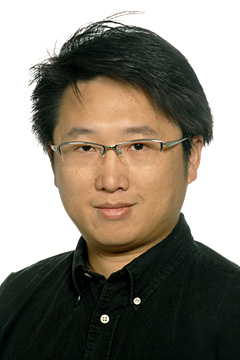Dissertation Title

Auditing the Use of LOINC® to Support Interoperability Across Three Large Institutions
Location: HSEB 5100B
Date: Mar. 13, 2012
Time: 11:00 am
Supervisory Committee: Stanley Huff, M.D.; Bruce Bray, M.D.; Lewis Frey, Ph.D.; Peter Haug, M.D.; Clem McDonald, M.D.
Abstract
The LOINC® (Logical Observation Identifiers Names and Codes) code system is in routine use in many healthcare organizations. We are interested in how well LOINC meets the goal of supporting interoperability across institutions. We conducted a series of studies about LOINC usage among three large institutions, including: 1. Associated Regional and University Pathologists, ARUP Laboratories (Salt Lake City, UT) 2. Intermountain Healthcare, Intermountain (Salt Lake City, UT) 3. Regenstrief Institute, Inc. (Indianapolis, IN). We examined the use of LOINC from 2003 to 2007 and studied how to develop a systematic approach for auditing LOINC use.
Ideally, LOINC should have the following characteristics: 1) Completeness: it should have all the necessary LOINC codes to cover the domain of interest, 2) Correctness: mapped LOINC codes should be faithful to the original meaning of the tests, 3) Consistency: the knowledge implied by different LOINC codes should be consistent, e.g. if two different codes have identical meanings, the codes are duplicates and the consistency principle is violated, and 4) Competence: Usefulness is the fundamental goal of LOINC for supporting use of laboratory data in different fields. In this thesis work, we demonstrated how to use above four characteristics to audit LOINC.
Throughout the research we worked closely with LOINC committee and discussed our findings at annual LOINC meetings and suggested to the LOINC committee ways that LOINC use could be improved.
Bio
Mark (Ming-Chin) Lin is a PhD candidate in the Department of Biomedical Informatics at the University of Utah. He received both an MD degree and a Masters degree in Medical informatics from Taipei Medical University (TMU), Taiwan. He also completed two years of residency training in the surgery department of the affiliated hospital of TMU.